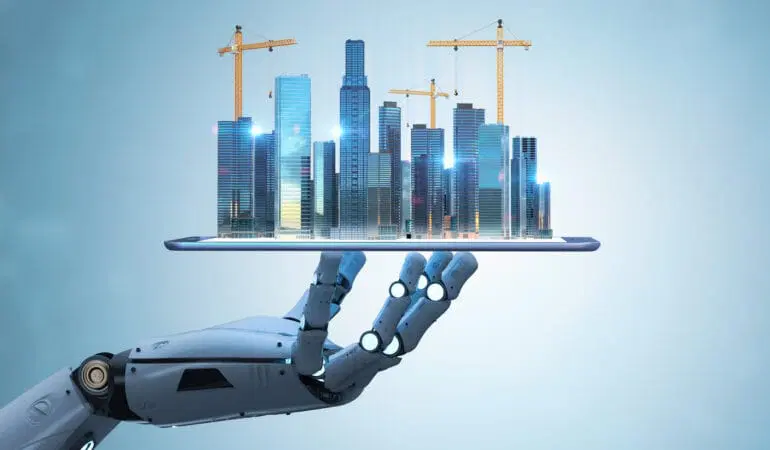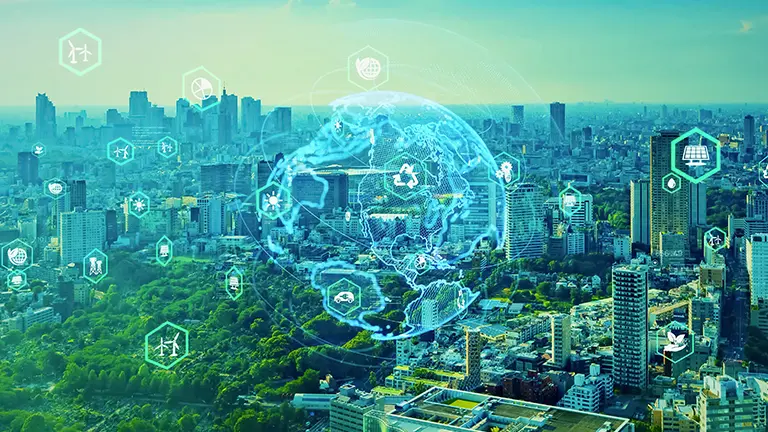As cities grow bigger, life becomes more complicated for the people living in them. Traffic jams, pollution, slow public services, and overcrowded spaces are daily struggles for millions. But there is hope—and it comes from artificial intelligence (AI). With the right tools and data, AI can help city governments solve real problems, improve services, and make life easier and safer for everyone.
What Is AI and Why Does It Matter in Cities?
AI stands for artificial intelligence. It refers to machines or software that can “think,” learn from data, and make decisions—similar to how humans do. In cities, AI can help in many areas such as transportation, energy, healthcare, housing, and security. It can read huge amounts of information, find patterns, and help leaders make smarter choices.

For example, AI can track traffic in real time, detect when garbage bins are full, or even predict where a crime might happen. This means problems can be solved faster, and city workers can focus on important tasks.
Learn more about the basics of AI in cities from IBM’s Smarter Cities Initiative.
Smarter Public Transport and Traffic Flow
One of the biggest uses of AI in cities is to reduce traffic. AI systems use data from traffic lights, GPS, and cameras to understand how cars and buses move. Then, it can adjust signal timings or suggest better routes.
In cities like Singapore and Los Angeles, AI is already improving traffic systems. AI can help reduce travel time, lower pollution, and even prevent accidents. For example, real-time data from Google Maps and traffic sensors can alert drivers about congestion and suggest faster alternatives.
Making Garbage Collection Smart
Waste management is another area where AI is making a big difference. In many places, garbage trucks follow the same route every day, whether bins are full or not. This wastes time, fuel, and money.
With AI-powered sensors in bins, cities like Amsterdam and Seoul know exactly when a bin is full. Then AI plans the most efficient route for trucks to empty only the full bins. This leads to cleaner streets, lower costs, and better resource use.
AI for Safety and Emergency Response
AI also plays a powerful role in making cities safer. AI-enabled cameras can recognize dangerous behavior, such as theft or violence, in real-time and alert the police. Some AI systems can even detect gunshots and instantly send the location to emergency services.
For example, New York City is testing AI systems that can predict where crimes might happen based on past data. While this raises privacy questions, it also helps police patrol smarter, not harder.
During emergencies like earthquakes or floods, AI can track weather data, predict risks, and help rescue teams reach people faster. In India, AI is being used to predict flood zones and alert citizens early through text messages.
Improving Health and Environment with AI
Air quality is a big issue in many cities. AI can analyze air pollution data and predict when air quality will become dangerous. City officials can then take action—like closing schools or reducing car traffic.

In healthcare, AI helps city hospitals and clinics by predicting disease outbreaks, managing hospital beds, and improving patient care. For instance, in Toronto, AI tracks flu symptoms through online searches and pharmacy data to prepare health centers in advance.
Smarter Energy and Water Use
AI is helping cities reduce energy waste by managing when and how much electricity is used in public buildings. Smart grids use AI to balance power supply with demand and avoid blackouts.
Water management is also getting smarter. AI can predict pipe bursts or leaks and help fix them before they waste thousands of gallons. In Barcelona, AI sensors detect pressure changes in pipes and send alerts before any damage happens.
Housing and Urban Planning
AI can even help design better cities. Urban planners use AI to study population growth, building patterns, and traffic flows. With this data, they can plan where to build new schools, hospitals, or parks.
AI also helps make housing more affordable. By analyzing rent prices and income data, governments can find the right areas to support with low-income housing programs.
Challenges and the Need for Transparency
While AI brings many benefits, it also raises concerns. Privacy, data protection, and job loss are major issues. It’s important that governments use AI responsibly and include public input when deciding how to use these technologies.
Experts say cities should adopt open data policies, ensure AI systems are fair, and regularly audit them to avoid bias.
Final Thoughts: AI Is the Key to Future Cities
AI is not science fiction anymore. It’s already making cities cleaner, safer, and more efficient. The key is to use it wisely, with care for the people it’s meant to help. When done right, AI can build cities where technology and humanity grow together.
With AI, the city of tomorrow may arrive sooner than you think—and it might just make your everyday life a whole lot easier.
Also Read – How AI Makes Cities Better: 5 Shocking Everyday Examples






